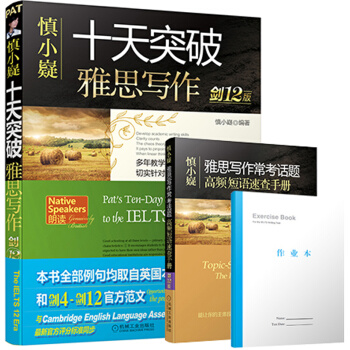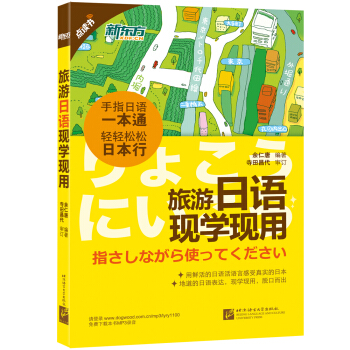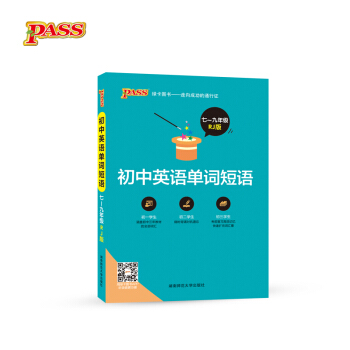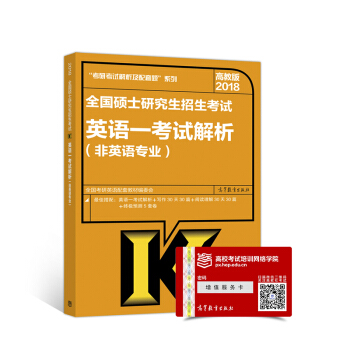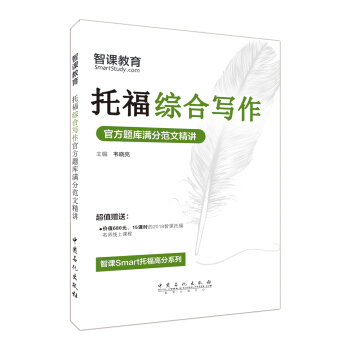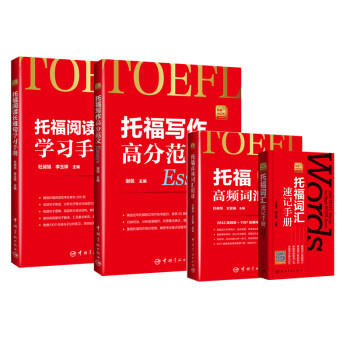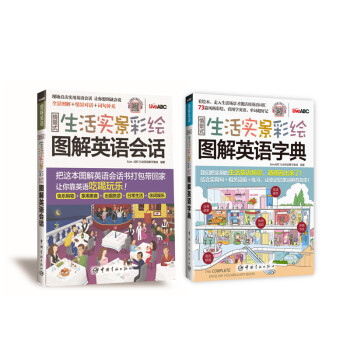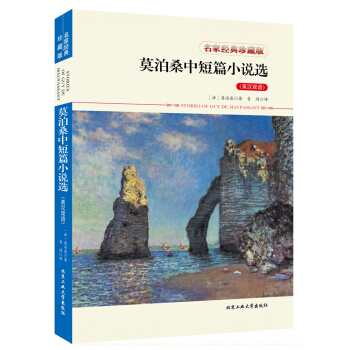

具体描述
编辑推荐
★荟萃“短篇小说之王”经典作品。★初高中语文新课标必读名著,展现法语魅力的典范。
★全面反映十九世纪后半期法国社会风貌和人情世态。充满戏剧张力的故事,行云流水的文笔,精湛的艺术表现手法,定让您手不释卷!
内容简介
《莫泊桑中短篇小说选》是莫泊桑是在小说创作上的杰作成就。莫泊桑是世界上数一数二的短篇小说大师,本书精选了《羊脂球》、《项链》、《春天》等经典名篇,集中体现了莫泊桑中短篇小说的取材广泛性,涵盖了当时法国社会生活的方方面面。他经常揭露和谴责统治阶级的腐朽没落,同情和赞扬下层社会的劳动人民。作者简介
莫泊桑,全名是居伊·德·莫泊桑(Guy de Maupassant 1850--1893),19世纪后半期法国优秀的批判现实主义作家曾拜法国著名作家福楼拜为师。一生创作了6部长篇小说和350多篇中短篇小说他的文学成就以短篇小说为突出是与契诃夫和欧?亨利并列的世界三大短篇小说巨匠之一对后世产生极大影响。译者:青闰(1965~),河南武陟人。本名宋金柱,常用笔名听泉、宣碧。现供职于焦作大学翻译中心。擅长双语互译。迄今已在外文出版社、译林出版社、上海交通大学出版社、东华大学出版社、大连理工大学出版社、中国宇航出版社等出版双语著作多部。另在《世界文学》《译林》《当代外国文学》《英语世界》等重要报刊发表译文和论文多篇。他翻译的原则是:“以雅俗共赏为基点,注重选材的广度、深度和科学性,整体把握字词句段篇,力求做到形声色味神的完美统一。”精彩书评
一辈子读过经典和没读过经典的人生整个都不一样,我不敢劝你们读一辈子的经典,但是希望你们至少认认真真读几本经典。——马 原
这些书之所以被称为经典,乃是它可以chaoyue时间、年龄、语言和族群而成为人类心灵成长的营养。商务印书馆是信誉极好的出版机构,相信这套书能带给读者莫大的阅读惊喜。
——方 方
对于学生们来说,应该是用两只眼睛读书,一只眼睛看书上的文字,另一只眼睛看文字的背后。这样才会在“经典”引导下,建立自己的思想。
——北 村
当一个人在少年时期就开始阅读经典作品,那么他的少年就会被经典作品中zui为真实的思想和情感带走,当他成年以后就会发现人类共有的智慧和灵魂在自己身上得到了延续。
——余 华 著名评
目录
Simon’s Papa / 西蒙的爸爸 1My Uncle Jules / 我的叔叔于勒 12
Father Milon / 米隆老爹 22
Two Friends / 两个朋友 31
The Piece of String / 一截细绳 41
On the River / 在河上 50
The Prisoners / 俘虏 58
The Wardrobe / 衣橱 72
The Umbrella / 雨伞 81
In the Wood / 树林里 92
Happiness / 幸福 98
The Diamond Necklace / 钻石项链 106
A Duel / 一场决斗 117
A Stroll / 散步 124
The Blind Man / 盲人 132
The Relic / 圣骨 137
The Wolf / 狼 144
The Devil / 魔鬼 152
Mademoiselle Fifi / 菲菲小姐 161
That Costly Ride / 骑马的代价 176
Clair de Lune / 月光 186
The Little Cask / 小酒桶 193
The False Gems / 珠宝 201
A Coup d’Etat / 一次政变 210
Mademoiselle Pearl / 珍珠小姐 224
Boule de Suif / 羊脂球 244
精彩书摘
Noon had just struck. The school door opened and the youngsters darted out, jostling each other in their haste to get out quickly. But instead of promptly dispersing and going home to dinner as usual, they stopped a few paces off, broke up into knots, and began whispering.The fact was that, that morning, Simon, the son of La Blanchotte, had, for the first time, attended school.
They had all of them in their families heard talk of La Blanchotte; and, although in public she was welcome enough, the mothers among themselves treated her with a somewhat disdainful compassion, which the children had imitated without in the least knowing why.
As for Simon himself, they did not know him, for he never went out, and did not run about with them in the streets of the village, or along the banks of the river. And they did not care for him; so it was with a certain delight, mingled with considerable astonishment, that they met and repeated to each other what had been said by a lad of fourteen or fifteen who appeared to know all about it, so sagaciously did he wink. “You know—Simon—well, he has no papa.”
Just then La Blanchotte’s son appeared in the doorway of the school. He was seven or eight years old, rather pale, very neat, with a timid and almost awkward manner.
He was starting home to his mother’s house when the groups of his schoolmates, whispering and watching him with the mischievous and heartless eyes of children bent upon playing a nasty trick, gradually closed in around him and ended by surrounding him altogether. There he stood in their midst, surprised and embarrassed, not understanding what they were going to do with him. But the lad who had brought the news, puffed up with the success he had met with already, demanded: “What is your name?”
He answered: “Simon.”
“Simon what?” retorted the other.
The child, altogether bewildered, repeated: “Simon.”
The lad shouted at him: “One is named Simon something—that is not a name—Simon indeed.”
The child, on the brink of tears, replied for the third time: “My name is Simon.”
The urchins began to laugh. The triumphant tormentor cried: “You can see plainly that he has no papa.”
A deep silence ensued. The children were dumfounded by this extraordinary, impossible, monstrous thing—a boy who had not a papa; they looked upon him as a phenomenon, an unnatural being, and they felt that hitherto inexplicable contempt of their mothers for La Blanchotte growing upon them.
As for Simon, he had leaned against a tree to avoid falling, and he remained as if prostrated by an irreparable disaster. He sought to explain, but could think of nothing to say to refute this horrible charge that he had no papa. At last he shouted at them quite recklessly: “Yes, I have one.”
“Where is he?” demanded the boy.
Simon was silent, he did not know. The children roared, tremendously excited; and those country boys, little more than animals, experienced that cruel craving which prompts the fowls of a farmyard to destroy one of their number as soon as it is wounded. Simon suddenly espied a little neighbor, the son of a widow, whom he had seen, as he himself was to be seen, always alone with his mother.
“And no more have you,” he said; “no more have you a papa.”
“Yes,” replied the other, “I have one.”
“Where is he?” rejoined Simon.
“He is dead,” declared the brat, with superb dignity; “he is in the cemetery, is my papa.”
A murmur of approval rose among the little wretches as if this fact of possessing a papa dead in a cemetery had caused their comrade to grow big enough to crush the other one who had no papa at all. And these boys, whose fathers were for the most part bad men, drunkards, thieves, and who beat their wives, jostled each other to press closer and closer, as though they, the legitimate ones, would smother by their pressure one who was illegitimate.
The boy who chanced to be next Simon suddenly put his tongue out at him with a mocking air and shouted at him: “No papa! No papa!”
Simon seized him by the hair with both hands and set to work to disable his legs with kicks, while he bit his cheek ferociously. A tremendous struggle ensued between the two combatants, and Simon found himself beaten, torn, bruised, rolled on the ground in the midst of the ring of applauding schoolboys. As he arose, mechanically brushing with his hand his little blouse all covered with dust, some one shouted at him: “Go and tell your papa.”
Then he felt a great sinking at his heart. They were stronger than he was, they had beaten him, and he had no answer to give them, for he knew well that it was true that he had no papa. Full of pride, he attempted for some moments to struggle against the tears which were choking him. He had a feeling of suffocation, and then without any sound he commenced to weep, with great shaking sobs.
A ferocious joy broke out among his enemies, and, with one accord, just like savages in their fearful festivals, they took each other by the hand and danced round him in a circle, repeating as a refrain: “No papa! No papa!”
But suddenly Simon ceased sobbing. He became ferocious. There were stones under his feet; he picked them up and with all his strength hurled them at his tormentors. Two or three were struck and rushed off yelling, and so formidable did he appear that the rest became panic-stricken. Cowards, as the mob always is in presence of an exasperated man, they broke up and fled.
Left alone, the little fellow without a father set off running toward the fields, for a recollection had been awakened in him which determined his soul to a great resolve. He made up his mind to drown himself in the river.
He remembered, in fact, that eight days before, a poor devil who begged for his livelihood had thrown himself into the water because he had no more money. Simon had been there when they fished him out again; and the wretched man, who usually seemed to him so miserable, and ugly, had then struck him as being so peaceful with his pale cheeks, his long drenched beard, and his open eyes full of calm. The bystanders had said: “He is dead.” And some one had said: “He is quite happy now.”
……
用户评价
这本书里那些关于爱情与背叛,尊严与屈辱的故事,像一团团挥之不去的阴影,紧紧抓住我的心神。我尤其被其中几篇关于女性命运的作品所触动。莫泊桑毫不留情地揭露了父权社会对女性的规训和压迫,那些看似光鲜亮丽的表象下,隐藏着多少无声的呐喊和绝望的妥协。我常常在想,即便时隔百年,我们是否真的走出了那种被社会期待所定义的角色桎梏?这种跨越时代的共鸣,让阅读体验变得沉重而有价值。他笔下的人物,没有绝对的好人与坏人,每个人都有其生存的逻辑和不得已的苦衷。这种复杂性,避免了脸谱化的说教,而是用一种近乎残忍的客观,让我们直面人性的灰色地带。每一次合上书卷,我都感到一种清醒的痛苦——那是对世界认识加深后的必然代价。
评分我发现,这本书的装帧和排版也相当考究。在这个充斥着快餐文化阅读的时代,能拿到一本实体书,尤其是这种精心校对的双语版本,本身就是一种享受。纸张的质感、字体的大小和行距的舒适度,都体现了出版方对读者的尊重。当我沉浸在那些关于诺曼底乡村生活、或是巴黎上流社会阴暗面的描述中时,良好的阅读载体极大地降低了视觉疲劳,让我的注意力能完全集中在文字本身。它不仅仅是知识的载体,更是一种可以被珍藏和反复翻阅的物品。购买和拥有这样一本经典选集,对我而言,更像是在精神世界里置办了一处可以随时回归的安静角落,在那里,我可以与最伟大的心灵进行一场跨越时空的对话,感受那份经久不衰的文学魅力。
评分作为一名文学爱好者,我经常会对比不同时代、不同地域作家的叙事风格。与俄国作家的宏大叙事和对灵魂拷问不同,莫泊桑的笔触是那样简洁、紧凑,直击要害。他更像一个冷眼旁观的记录者,没有过多的抒情和议论,一切都通过情节的推进和人物的对话自然流淌出来。这种“零度写作”的倾向,使得故事的张力更加强大,每一个转折都显得那么必然且令人心悸。我甚至觉得,他的短篇小说结构精巧得如同一个完美的机械装置,每一个齿轮都咬合得天衣无缝,最终导向那个无可逃避的结局。这种对形式的极致追求,使得这本书在可读性之余,更具备了极高的艺术典范价值。对于想学习如何讲好一个故事的写作者来说,这本书简直是无价的教科书。
评分我对这类双语对照读物的偏爱,很大程度上是因为它们提供了跨越语言障碍的直接体验。阅读《莫泊桑中短篇小说选》的过程中,我发现对照阅读的优势是无可替代的。当遇到一些中文翻译中可能略显平淡的表达时,立刻去看原文,那种语言的张力和韵味便会扑面而来。莫泊桑的法语原文是如此凝练和富有音乐性,即便是初学者也能感受到那种文字的节奏感。这种并行的阅读方式,极大地提升了我的阅读效率和理解深度。我不再满足于仅仅知道故事的大意,而是开始关注词语的选择,句式的构造,以及作者是如何通过特定的语言结构来营造氛围的。它让我体会到,好的翻译固然重要,但直接面对原著的挑战与乐趣,才是真正将一位作家的精髓吸纳进自己知识体系的关键一步。这本书的设计非常贴心,为不同水平的读者都搭建了一个绝佳的学习和欣赏平台。
评分这本《莫泊桑中短篇小说选(英汉双语)》实在是让人欲罢不能,读完之后我的内心久久不能平静。我是一个对经典文学情有独钟的读者,尤其是那些能够深刻揭示人性复杂面的作品。莫泊桑的文字,那种不动声色的冷峻和精准,就像一把锋利的手术刀,毫不留情地剖开了十九世纪末法国社会的百态。我特别欣赏他那种对细节的捕捉能力,每一个场景的描绘,每一个人物的动作,都充满了生活的质感,让人仿佛身临其境。比如他笔下的那些小人物,那些在社会底层挣扎、在虚荣与欲望中沉浮的个体,他们的悲剧命运,读来令人唏嘘。那种不加粉饰的真实感,远比那些宏大的叙事更具有震撼力。每一次翻开这本书,我都像是进行了一次深刻的自我审视,反思着人性中那些难以启齿的弱点。这本书不仅仅是文学作品,更是一部洞察人心的社会学报告,值得反复咀嚼。
评分作为孩子学习英语的阅读书籍,书印刷质量不错,字体大小合适、清晰,孩子爱不释手。
评分中英文双语,凑单买的,很划算,英文字体有点小。再大些就好些了。呵呵……呵呵……
评分做活动一次性买的,很实惠,纸张很好
评分为什么法国作家的书是中英双语的。。。
评分常网购总有大量包裹要收,很多的评语要写,但是写评语花掉了我大量的精力和时间,回头想想我花了钱还要花这么多的精力和时间来写评语,是不是很不划算。所以一段时间里我总是不去写评价或者随便写写,但是我又觉得好像有点儿对不住那些辛苦工作的卖家,客服,仓管老板,于是我写下了一小段话给我觉得能拿到五星好评的卖家的宝贝评价里面,以示感谢和尊敬,首先宝贝的性价比是很高的,我每次都会先试用,再评价虽然宝贝不一定是最好。但在同等价位里绝对是最棒的,其次在买家的沟通里,无论是购前咨询,还是后期询问。卖家都好好解答,另外物流的速度也是可以接受的,偶尔有比较慢的物流,也希望大家可以耐心等待,毕竟卖家不能控制物流的速度啊,相反卖家比我们更希望能早日到货,我们能早点儿付款,希望卖家能再接再厉,把店铺做得更强更大,提供更多更好的东西给大家!!!
评分中英文双语,凑单买的,很划算,英文字体有点小。再大些就好些了。呵呵……呵呵……
评分本来想退回去的,又没有退了。这个故事不错,就是英汉的占了很大篇幅。
评分一次买了很多本,有活动价格很实惠
评分多读书,可以让你觉得有许多的写作灵感。可以让你在写作文的方法上用的更好。在写作的时候,我们往往可以运用一些书中的好词好句和生活哲理。让别人觉得你更富有文采,美感。 多读书,可以让你全身都有礼节。俗话说:“第一印象最重要。”
相关图书
本站所有内容均为互联网搜索引擎提供的公开搜索信息,本站不存储任何数据与内容,任何内容与数据均与本站无关,如有需要请联系相关搜索引擎包括但不限于百度,google,bing,sogou 等
© 2026 book.coffeedeals.club All Rights Reserved. 静流书站 版权所有



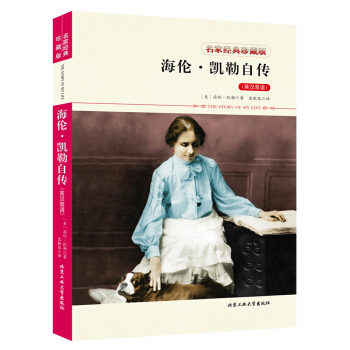

![飞鸟集+新月集(英汉对照注释版 套装全2册) [Stray Birds+The Crescent Moon] pdf epub mobi 电子书 下载](https://pic.windowsfront.com/12129055/5ad5a6c3N69d78fcb.jpg)
